Europe had the likes of Alexander the Great and Frederick the Great, Asia had Gwanggaeto the great and Ashoka while Africa had Mansa Musa and Shaka as some of its greatest Kings.
Before the colonial era, during, and even after, Africa had kings that were great statesmen, administrators, and conquerors. Many of them oversaw the rise of empires that covered many territories and lasted many decades. These kingdoms and empires drew the attention of distant nations and kingdoms which form today’s Asia and Europe.
Here are some greatest African Kings you should know about.
12 Most Powerful African Kings Of All Time
1. Mansa Kanka Musa Of Mali
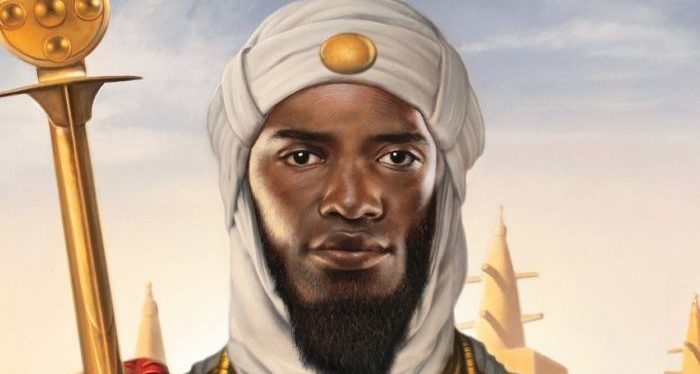
Arguably, King Mansa Musa is the greatest man to have ruled any African territory. He was the ruler of the kingdom of Mali from 1312 C.E. to 1337 C.E. His territory cut across present-day Mali, Nigeria, Senegal, Chad, The Gambia, Niger, Guinea, Mauritania, and Burkina Faso.
By the time he became king, the Mali Kingdom was already very wealthy, but he further pushed it to a height that was never seen. He also brought in architecture from the Middle East.
At his peak, King Mamsa became the wealthiest man with a net worth estimated at over $400 billion. This means that to date, no man has recorded his fortune.
He built his riches from trade in Gold and elephant tusk amongst other things. His greatness was documented by the Egyptians and Europeans. What was more, King Mamsa saw Mali to its greatest height.
He died in 1337, leaving a vast and thriving kingdom to his son who succeeded him. Sadly, the responsibility was such that not many could handle and that led to the fall of the empire.
2. Shaka Zulu Of Zulu Kingdom
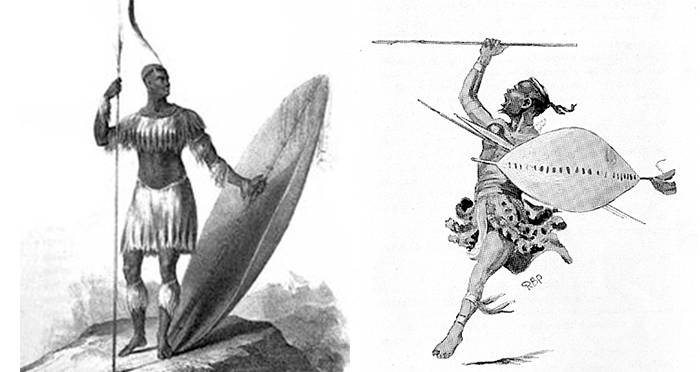
Regarded as the founder of the Zulu empire which dominated the Southern part of Africa, Shaka was born to the chief of a small chiefdom, Zulu in 1787. At the time when his mother took in for his father, Senzangakona, the two were not married and so he was not born in his father’s house. However, even though he tried denying paternity, Shaka’s father later accepted the child.
Sadly, the marriage between his parents did not end well and so he and his mother left the house, causing him a terrible childhood of humiliation as many considered him a bastard.
The boy grew up strong and powerful under the mentorship of the leader of another clan, Dingiswayo who would not only turn him into a great warrior but also helped him to take over the throne of his father after Senzangakona died in 1816.
After taking out Shaka’s half-brother, Sigujana in a bloodless coup. Shaka’s rule was characterized by unhinged brutality and a military expansion that was never experienced before. He brought all the smaller chiefdoms under his control, forming the Zulu kingdom.
With the death of his mother in 1927, Shaka lost his mind. He murdered as many as 7000 of the Zulus in his grief, including pregnant women and their husbands. Cows were also murdered and to grieve his mother, no crops were planted for a year and no milk.
His erratic behavior was not without consequences, as this won him many enemies including his half-brothers who were never his best allies in the first place. This led to his death in 1828 following an assassination by his half-brothers, Dingane and Mhlangana.
3. Taharqa The Kushite Pharaoh
One of the Nubian Pharaohs that rule Egypt, Taharqa was considered to be among the greatest kings Africa has seen. During his reign, Egypt was very prosperous. He saw to many constructions in his territory, including the largest pyramid in the Nubian region. Like most other pre-colonial African kings, he also had some successful military campaigns that added to his territory.
He is believed to have been mentioned in the Bible in 2nd Kings 19 vs 9 and also Isiah chapter 37 versus 9. He was referred to as the Kushite king of Egypt who led a battle against the king of Assyria, Sennacherib, considered to be one of the most powerful and wide-ranging Assyrian kings. With his help and what was believed to be divine help, Judah and King Hezekiah were able to overcome the siege of the Assyrian king in 701 BC.
Having ruled from 690, his reign came to an end in 664 BC when he died.
4. Ewuare the Great, Oba of Benin
Yet another considered to be one of the greatest kings in Africa is the King of Benin oba, Ewuare the Great. Born Ogun, this king was respected for being very charismatic, brave, and with mystical powers. Before becoming king, Ewuare who was the heir to the Benin throne was exiled together with his brother, Uwaifioku.
Many years after, Ogun sent his brother to see if it was time for them to return but his brother did not come back as he found the throne empty and so he became king. Angered by this betrayal, Ewuare returned and carried out a bloody coup on his brother and a brutal revenge on the people of Benin for banishing him.
By the time he was done, a better part of the kingdom was left in ruins. But that was only where his story began as after this, he took the name of Ewuare which means the troubles have ceased.
He got down to work and rebuilt his kingdom in an organized manner that one would hardly find in other places at the time. He also built roads and close to 10 gateways into the city. Under him, the Benin Kingdom expanded its territories as he captured many other kingdoms and chiefdoms. His lands expanded to places such as the Niger River to the present day Lagos which was believed to be founded under Ewuare with his capital in the present day Benin City.
Famously referred to as the Bronze King, Oba Ewuare was very instrumental to the Bronze culture of the Edo people which the kingdom has come to be identified with to this day. He encouraged other artistry including ivory and wood carving.
Ruling from 1440 until 1473 when he died, he was said to have made contact with the Portuguese when they first came in 1472 and he established a trading relationship with them. He was also recorded as the first Oba of Benin to speak Portuguese.
5. Songhai’s Sunni Ali
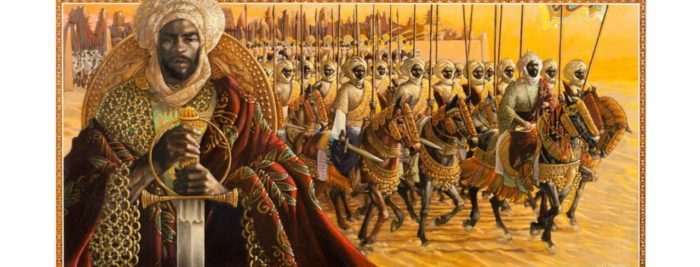
Also referred to as Sunni Ali Ber, he was the 15th king of the Sunni Dynasty and the founder of the Songhai Empire. He captured many territories to form his kingdom including some areas of the Mali Empire as well as the Ghana Empire.
Before him, the Songhai kingdom was only made up of small areas along the upper Niger Valley. However, began his expansion with the capture of Timbuktu and from there, there was no looking back for him.
Known as a savage leader, he had firm control of Djenne, affording him great control of the trade around that region. He created the grounds for the expansion of his kingdom in both territory and trade. He was considered to be a Magician-Muslim King.
Read Also: Izaak Theo Adu- Bio, Age, Partner, Other Facts About Sade Adu’s Trans son
6. Tenkamenin, the People’s King
Unlike many others who became known for conquests and unending wars, Ghana’s Tenkamenin earned his place among the greatest African kings thanks to his manner of leadership. He was the beloved leader of his people whose reign was short but very impactful.
He ruled from 1062 to 1076, but in that period, he saw the Ghana Kingdom into becoming one of its most prosperous periods in history.
Nicknamed “The People’s King,” Tenkamenin had so much empathy towards his people and would ride on horseback each day to seek the opinion of his subjects and listen to their complaints. Before he takes any decision, he would seek the counsel of his advisers and the opinions of his people, which helped him to have a prosperous reign.
While he is known for his lavish lifestyle, this king who ascended the throne at the age of 25 and governed territories that cover some parts of modern-day Ghana, Mali, and Mauritania, helped his kingdom to become one of the richest at the time. He established an excellent trading and tax system which he ensured was judiciously used in the governance of his people.
7. Askia Muhammed Of Songhai
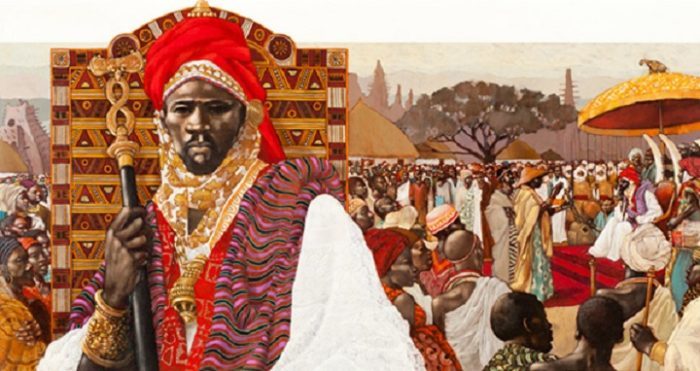
A general under yet another great king, Suni Ali, Askia Muhammad 1 became the founder of the Askia Dynasty after he defeated his former master’s son, Sunni Baru to become the King of the Songhai Empire. Askia expanded the territory he took over, making it the largest kingdom West Africa had ever seen.
He also enacted policies that aided the spread of the Islamic religion and he built many schools because of the importance he put on education. He established trading relationships with many distant territories including the Europeans and Asians. Thanks to this and a well-defined tax system, the economy of the Songhai Empire thrived under him.
His reign was cut short in 1538 when he was deposed in a coup by his son, Askia Musa who then ascended the throne. Sadly, Musa was not to last long as he was killed only a few years after he became king.
8. Sundiata Keita
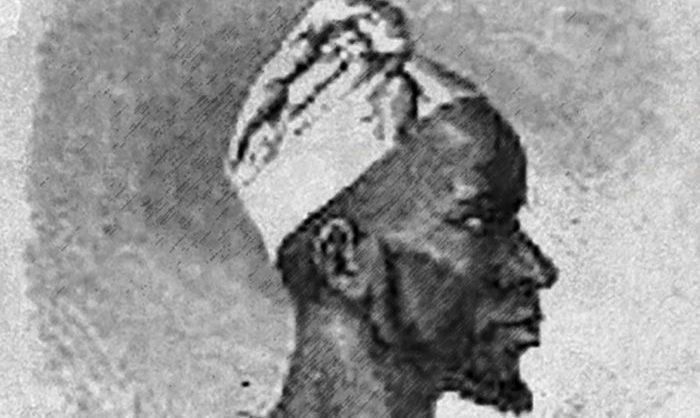
Sundiata Keita, King of Mali Popularly known as the Lion of Mali, Sundiata Keita is the great uncle of arguably the richest man that has ever lived, King Mansa Musa, and also the founder of the Mali Empire.
Mansa Sundiata was regarded as a great leader and warlord who expanded his territory into the creation of the Mali Empire. Well-respected by his army, he ruled over a very large territory with people of different religions and languages.
He also saw the economic prosperity of the kingdom through trading and gold mining. Sundiata Keita helped develop the agricultural system of the empire. This great African king developed laws that have evolved into becoming a part of the modern day constitution of Mali as a country. One of the greatest achievements of King Sundiata was that before he died in 1255 at the young age of 38, his kingdom was recognized for its near absolute security.
9. Endubis (Endybis) Of Askun
The sovereign of the Kingdom of Aksumites in the late 3rd century, Endubis is most recognized for his economic reforms. He is considered to be one of the greatest kings Africa has seen mostly because of his impact on the trading of his people and beyond. He was the first African king to have a coin minted for his people. The Endybis coin was dated from 295 to around 310. Because his people had the Greeks among their most important trading partners at the time, this king ensured to have the coin engraved with Greek words.
During the reign of King Endubis, his empire was recognized as one of the four greats including the three kingdoms of china, the Roman Empire, and the Sasanian Empire.
With the establishment of the coins in gold, silver, and bronze, it was now easy for him to increase the wealth of his empire as it was now easy to get tax and other payments from his people. Subsequent leaders that came after him also printed their own coins and the kingdom continued to prosper until it decline around the 10th century as a result of external political influence and climate change.
10. Idris Alooma Of Kanem-Bornu Empire
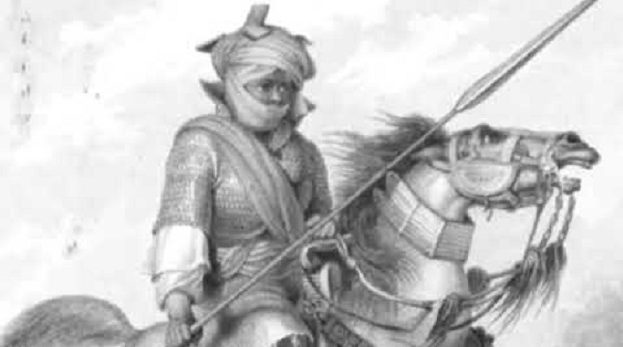
Idris Alooma was the 54th king of the Sefawa Dynasty which ruled the Kanem Bornu Empire for many years. The greatest of the empire’s leaders, his territory cut across some parts of modern-day Nigeria, Cameroon, and Chad.
He became king when he was 25 years old and ruled from 1564 to 1596. It was during his reign that the empire achieved its greatest glory as he was considered to be a great administrator, a religious reformer, and a skillful military leader. He was victorious in more than 300 battles using tactics that were not famous at the time.
More so, Mai Idris Alooma also established relationships with distant territories including Libya and Egypt. More to that, his greatness expanded to architectural reforms with the building of red brick walls and legal reforms around Islamic law.
He fostered intermarriages in order to establish and maintain political alliances. Under this king, the Kanem Bornu Empire’s wealth was pushed to its zenith through revenue that came from tributary states, as well as trade in slaves and other products such as perfume, copper, glass, silk, ivory, and cotton. He established better trading routes and designed boats for both exporting and importing items to his empire. One more thing he did was to introduce a standard unit of measurement for grain so that farmers can benefit.
11. Osei Tutu Of Asante Empire
Born in 1660, Osei Tutu became the King of the Asante Empire between 1680 and 1690. He became chief of a small village known as Kwaaman or Kumasi following the death of his uncle but by this time, he was wanted by their powerful neighboring kingdom of Denkyera for an adulterous affair he had with their princess years before he became chief.
Knowing that a war with the Denkyirans was inevitable, he rallied other smaller and independent Ashante kingdoms around, leading to the creation of the Amantoo confederacy which defeated the Denkyrian army.
It was in the process of this that he became the founder of the Ashanti Empire, expanding the tiny Kingdom he inherited from his uncle into a Kingdom that thrived in war and trade. Beyond being recognized as the founder of the Ashanti Kingdom, he has also come to be regarded as one of the greatest African kings ever.
12. Mvemba Nzinga (Afonso Of Kongo)
Arguably, Mvemba Nzinga is one of the greatest African Kings who is recognized for the popularization of Christianity. Mvemba Nzinga ‘Alfonso’ of the Kongo Dynasty ruled from 1456–1542 or 1543 after the death of his father. Aside from taking his Christian faith to his people, he was known for his enthusiasm for education.
He built schools, churches, and worked hard towards alleviating the illegal slave trade in his kingdom using several media that include the writing of letters to the Portuguese authority.





















Discussion about this post